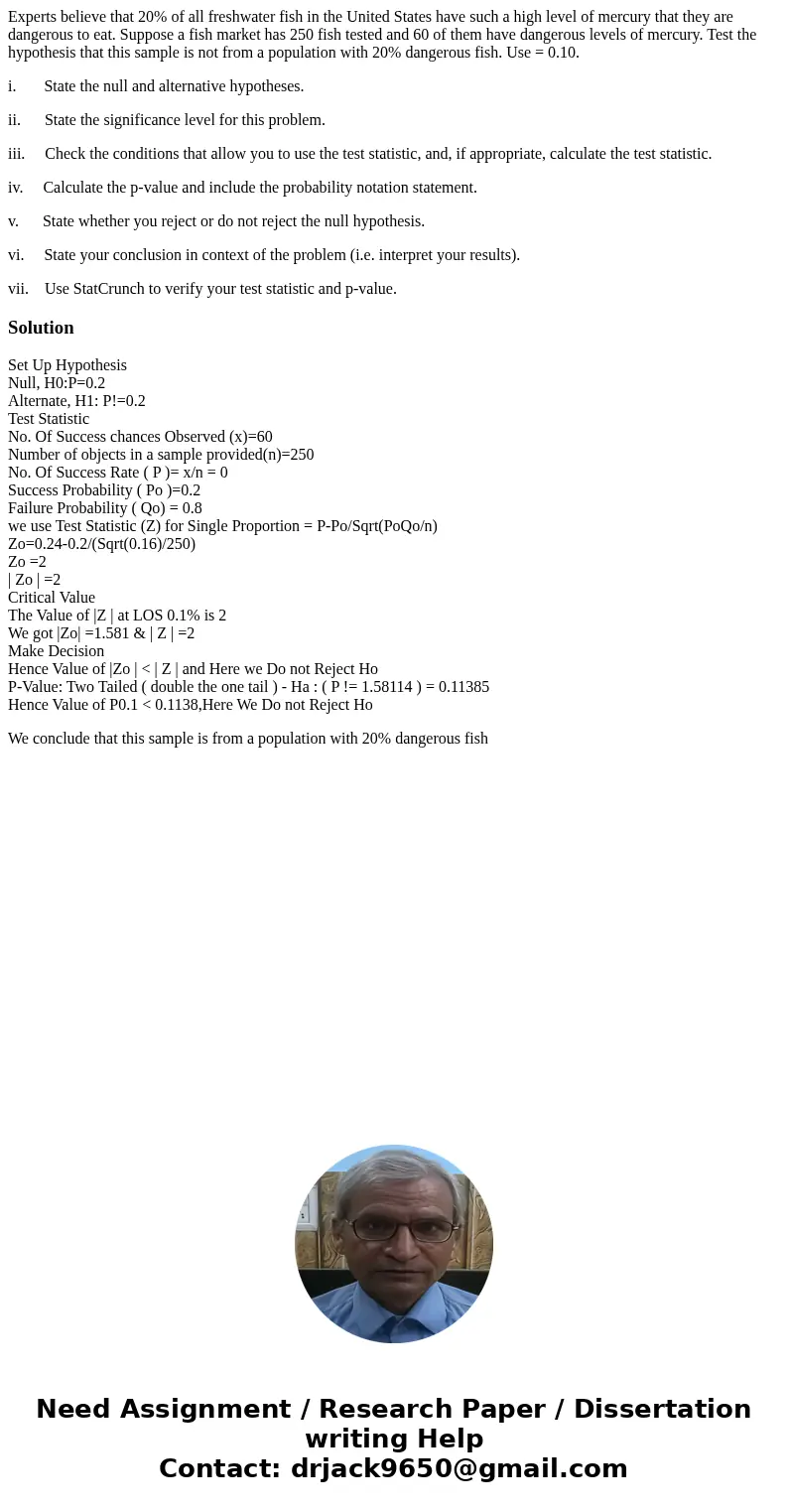Experts believe that 20 of all freshwater fish in the United
Experts believe that 20% of all freshwater fish in the United States have such a high level of mercury that they are dangerous to eat. Suppose a fish market has 250 fish tested and 60 of them have dangerous levels of mercury. Test the hypothesis that this sample is not from a population with 20% dangerous fish. Use = 0.10.
i. State the null and alternative hypotheses.
ii. State the significance level for this problem.
iii. Check the conditions that allow you to use the test statistic, and, if appropriate, calculate the test statistic.
iv. Calculate the p-value and include the probability notation statement.
v. State whether you reject or do not reject the null hypothesis.
vi. State your conclusion in context of the problem (i.e. interpret your results).
vii. Use StatCrunch to verify your test statistic and p-value.
Solution
Set Up Hypothesis
Null, H0:P=0.2
Alternate, H1: P!=0.2
Test Statistic
No. Of Success chances Observed (x)=60
Number of objects in a sample provided(n)=250
No. Of Success Rate ( P )= x/n = 0
Success Probability ( Po )=0.2
Failure Probability ( Qo) = 0.8
we use Test Statistic (Z) for Single Proportion = P-Po/Sqrt(PoQo/n)
Zo=0.24-0.2/(Sqrt(0.16)/250)
Zo =2
| Zo | =2
Critical Value
The Value of |Z | at LOS 0.1% is 2
We got |Zo| =1.581 & | Z | =2
Make Decision
Hence Value of |Zo | < | Z | and Here we Do not Reject Ho
P-Value: Two Tailed ( double the one tail ) - Ha : ( P != 1.58114 ) = 0.11385
Hence Value of P0.1 < 0.1138,Here We Do not Reject Ho
We conclude that this sample is from a population with 20% dangerous fish

 Homework Sourse
Homework Sourse